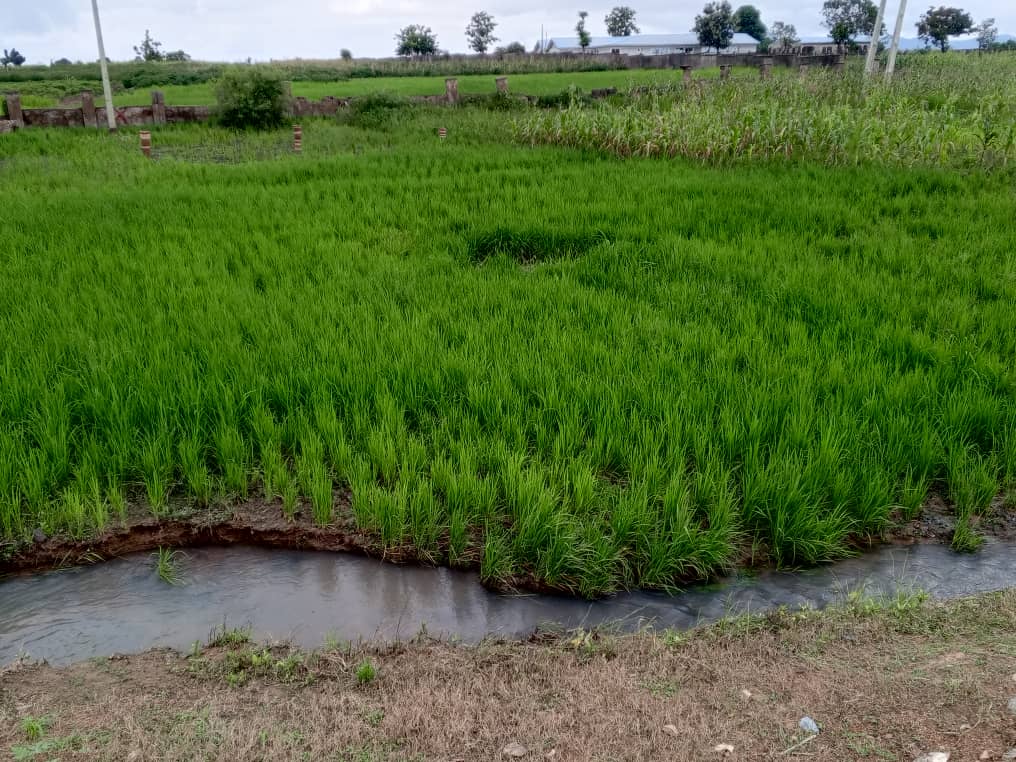Tackling insecurity and boosting irrigation for year-round farming. By Michael Oke

Tackling insecurity and boosting irrigation for year-round farming

Government intervention plays a crucial role in addressing the security challenges facing farming communities.
At the same time, there is a pressing need to modernise agricultural practices, particularly in rain-fed and irrigation systems, as well as feed management, to boost productivity and ensure a sustainable food supply.
In many parts of the country, farmers are increasingly unable to access their farmlands due to growing insecurity, resulting in reduced food production and worsening economic hardship.

Without adequate protection and support from the government, the agricultural sector which remains a vital driver of employment and national growth continues to face significant setbacks.
To reverse this decline, a coordinated approach is necessary, one that combines improved security, investment in agricultural technology, and strategic policy reform. Such an approach will not only revitalise local farming but also attract foreign investment, reduce post-harvest losses, and strengthen Nigeria’s overall food systems.
Many individuals interested in farming are unable to visit their farms due to fear and insecurity. Farmers face numerous challenges, including crop spoilage, soaring food prices, farmer deaths, and dwindling foreign investment consequences largely resulting from neglect and inadequate policing in rural areas.

It is imperative to intensify the efforts of security personnel tasked with protecting farming communities. These officers must ensure that these areas remain safe and stable so that farmers can cultivate their lands, earn decent livelihoods, and participate in best agricultural practices across the country.
A large portion of Nigeria’s food supply originates from the North, where certain crops flourish due to the region’s climate and soil. This makes robust security in the North essential. Additionally, there must be a strong commitment to reclaiming vast farmlands seized by roaming bandits and to supporting the revitalisation of agriculture in the region.
Security personnel must adopt a more proactive and determined approach to protect farming zones. Only then can farmers confidently return to their lands, increase productivity, and adopt modern, efficient farming techniques.
Likewise, since the West and East contribute significantly to national food production and because certain crops thrive specifically in these zones stringent security measures are equally vital there.
Authorities must also prioritise expanding agricultural activities and reclaiming farmland lost to banditry in these areas.
The poor state of farm-to-market roads and the lack of basic infrastructure in rural communities severely hamper agricultural trade. As a result, farm produce often spoils or fetches low prices due to transportation challenges. While Nigerians continue to complain about food shortages, many farmers are unable to support their families in meaningful, sustainable ways.
There is an urgent need for legislative action to increase agricultural output, level the playing field, and protect vulnerable rural communities.
Enacting and enforcing targeted laws will help foster productivity and create a safer environment for farmers.
Nigeria requires well-defined agricultural policies and regulations that protect farmers, improve food distribution, and enhance safety across the supply chain. These laws should also safeguard the interests of those involved in agricultural investment, trade, procurement, and marketing.
Effective legislation will improve farming practices nationwide and expand access to food for the broader population.
In addition, innovative laws are needed to support the modernisation of livestock farming and promote the export of dairy and other agricultural products.
The government must also invest across all agricultural value chains, especially in the acquisition of machinery, and implement laws to minimise risks and uncertainties in the farming sector.
Policies designed to benefit both commercial and smallholder farmers are essential. These should promote sector-wide growth and attract more individuals to careers in agriculture. Key strategies include timely provision of subsidies, access to modern equipment, high-quality seeds, fertilisers, grants, and affordable loans.
With support from the Nigerian Meteorological Agency (NiMet), farmers can also utilise artificial intelligence (AI) tools for weather forecasting and livestock or crop monitoring.
Most importantly, the government must fulfil its constitutional duty to protect the lives and property of its citizens. All stakeholders must collaborate to implement proactive and strategic measures that ensure the safety and well-being of farmers and rural dwellers.
To reduce dependence on food imports, achieve food self-sufficiency, promote year-round farming, and ease the anxieties of farmers, agricultural production and exports must be strategically managed.
These efforts will stimulate economic growth and position Nigeria as a strong, self-reliant global player.
Promoting Investment in Irrigation
Nigeria currently appears uncommitted to encouraging meaningful investment in irrigation systems capable of supporting sustainable agricultural operations over time. In the long run, farmers aim to cultivate enough land to feed the nation and potentially export food to other continents.
Moreover, market opportunities abound for such expansion.
Investing in irrigation offers a tangible solution to food insecurity by enabling year-round farming. For Nigeria to truly benefit, it must embrace innovation and establish partnerships with countries that have successfully implemented diverse irrigation techniques. A creative and resilient workforce, recognised for its vast potential, is also essential.
Irrigation fosters seedling growth and supports the expansion of the horticultural sector. A robust agricultural workforce enhances food security and boosts productivity across all levels of the value chain.
Irrigation also provides significant economic opportunities especially for youth. Men and women can collaborate to grow vegetables, cultivate tomatoes and peppers through greenhouse technologies, raise livestock, and promote education and innovation in agriculture.
One of the long-term benefits of growing the agricultural sector is reduced reliance on rain-fed farming.
However, there are lingering fears that even with widespread irrigation, Nigeria may struggle to feed its rapidly growing population. Despite the presence of abundant water resources, the country has yet to fully adopt even basic irrigation techniques.
Investment in machinery and modern farming technologies is just as crucial. Seedlings, extension services, and year-round farming operations must be supported by reliable infrastructure and consistent government backing.
These efforts should not be tied to seasonal food cycles alone. Year-round farming sustains employment, promotes the cultivation of specific crops, and increases farmers’ profit margins.
Nigeria already possesses the potential to produce and export large quantities of agricultural goods, thereby earning foreign exchange and creating jobs. Investing in water resource development will further reduce disparities in food distribution and enhance national food security.
It is vital to understand that some crops thrive in arid environments, requiring minimal water and care. Pest and disease reduction can also be achieved through farmer training, enhanced infectious disease management, and the promotion of efficient irrigation systems.
Michael Adedotun Oke
Project Facilitator, Talent Upgrade Global Concept
Michael Adedotun Oke Foundation
Plot 232 Kaida Road, Old Kutunku, Gwagwalada, Abuja, Nigeria
maof2020@gmail.com
+234 802 714 2077




